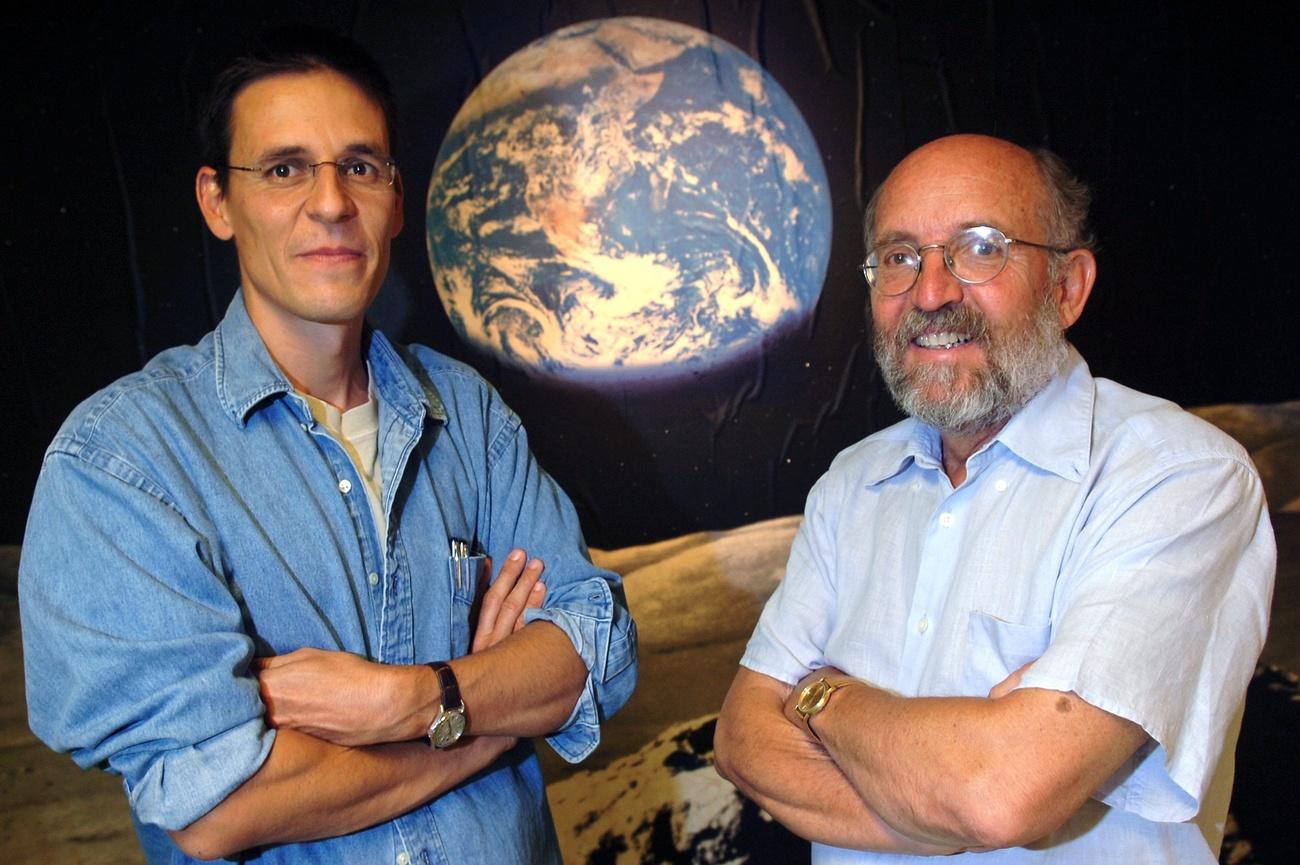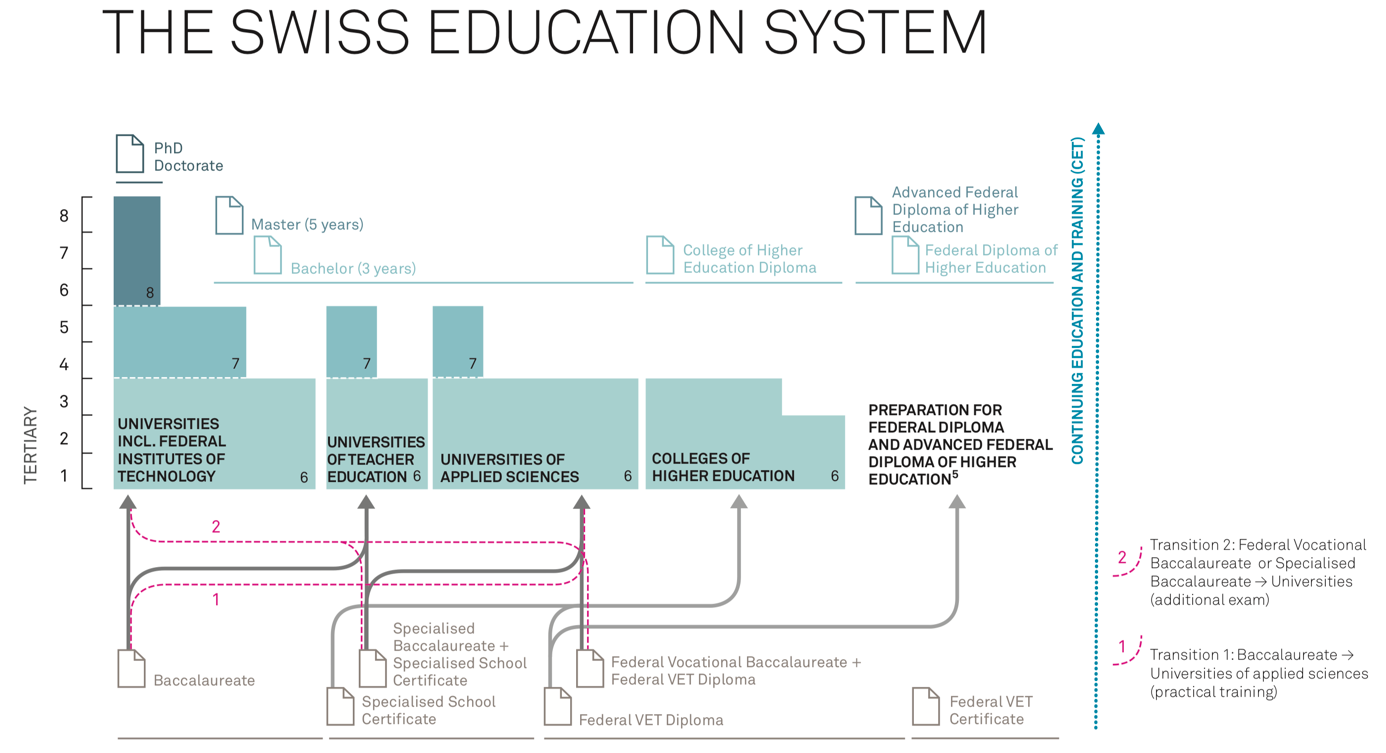
How important are university rankings?

Swiss schools tend to do well in university rankings. But how are they regarded by the institutions themselves, and why do the results vary so much?
While some argue that league tables help assess quality in an increasingly global, competitive and diverse environment, others sayExternal link they can lead universities to focus on rankings-friendly research over teaching and social responsibility. Critics have also pointed to league tables favouring the advantage enjoyed by the top 200 unis, many of which are in Europe and North America.
The Federal Institute of Technology ETH ZurichExternal link is generally Switzerland’s highest-ranked university, with its Lausanne counterpart, EPFLExternal link, coming in second. However, there are others snapping at their heels: the University of Geneva now has two Nobel Physics Prize winners, which could affect its position in these lists.

More
Swiss scientists win Nobel Prize in Physics
In the Times Higher Education (THE) World University 2020 rankings, Switzerland had more top-200 universities per capita than any other country.
+ How Switzerland did in the TESExternal link 2020 and QS rankings
Which are the main rankings for Switzerland?
QSExternal link, ShanghaiExternal link, THEExternal link and LeidenExternal link are the four highlighted by the State Secretariat for Education and Research (SERI)External link on its platform universityranking.chExternal link. This website was set up in 2006 in response to the huge interest generated by the very first university ranking, Shanghai, in 2003 (university rankings are a relatively recent phenomenon). The platform does not order the rankings but summarises how Swiss institutions stand in the different league tables, SERI told swissinfo.ch. It also serves “to give explanations of the methodologies and, above all, warn readers against wrongly interpreting the rankings”, a SERI representative said.
SERI added that the rankings were not used to formulate higher education and research policies, but they did help well-ranked institutions in public relations with policymakers and future students.
What do the Swiss universities say?
Swiss universities are aware of both sides of the coin. Take the Federal Institute of Technology ETH ZurichExternal link, ranked joint 13th in the THE 2020 ranking, the highest position for a university outside the UK and US.
“While academic league tables provide universities with a valuable tool for comparison, they are only a partial view of a university,” ETH president Joël Mesot said in a written comment. “ETH Zurich’s strategy is derived from the federal mandate to conduct fundamental research, educate specialists and transfer new knowledge to the economy and society. Under these circumstances, it’s a huge achievement that ETH continues to rank among the world’s best universities.”

More
From ETH to the University of Geneva: understanding Switzerland’s university system
The newly-Nobeled University of GenevaExternal link, number 144 in the THE 2020 list, wrote that it did not have a specific policy to improve its position in certain rankings or criteria, but concentrated “on the improvement of its teaching and research”. However, the double Nobel Prize is expected to “have a positive impact on the rankings, even if it’s impossible to say by how much,” said spokesman Marco Gérard Cattaneo.
Overall, as the top THE 200 are considered the 1% best in the world, you can’t ignore the impact on scholars and students, the university said. But rankings don’t give the whole picture and should be approached with caution, especially “not to overinterpret swings up or down, often due to methodological changes”.
What do the rankings assess?
THE’s list is based on 13 performance metricsExternal link, grouped into five areas (teaching/reputation, research, citations and then international outlook and industry income/innovation). QS is based on five indicators, with the most important being the academic peer review (40%). The Shanghai ranking focuses more on research, including awards and frequently cited publications, while Leiden looks into scientific performance, based on bibliometric indicatorsExternal link.
This explains why ETH Zurich was sixth in the QS 2020 and thirteenth in the THE 2020 list.
So which is best?
This is difficult to say. Even Phil BatyExternal link, THE chief knowledge officer, has said on TwitterExternal link that there is “no correct or accurate university ranking”.
As he told swissinfo.ch at a THE summit in ZurichExternal link, rankings could “vary significantly depending on the measures that are chosen, the metrics, the weightings given”.
“We have to be honest as rankers as say nobody is putting on a tablet of stone that ETH Zurich is the thirteenth best university in the world and Oxford the first,” he said. Instead, the outcome is based on a specific group of metrics “decided in consultation with the sector,” he explained.
For that reason, Baty encourages people to break down the data according to their needs – so students might be interested in resources available for teaching, but PhDs might look at citations and reputation.
The EPFL (38th in the THE 2020 list) sums up the dilemma nicely on its websiteExternal link: “None of these rankings are perfect, but they all shed some light on the universities under scrutiny. The analysis of the globality of all rankings gives a fairly reliable idea of the relative importance, perception and performance of academic institutions.”
+ Find the latest on Swiss education, including rankings news

In compliance with the JTI standards
More: SWI swissinfo.ch certified by the Journalism Trust Initiative





























You can find an overview of ongoing debates with our journalists here . Please join us!
If you want to start a conversation about a topic raised in this article or want to report factual errors, email us at english@swissinfo.ch.